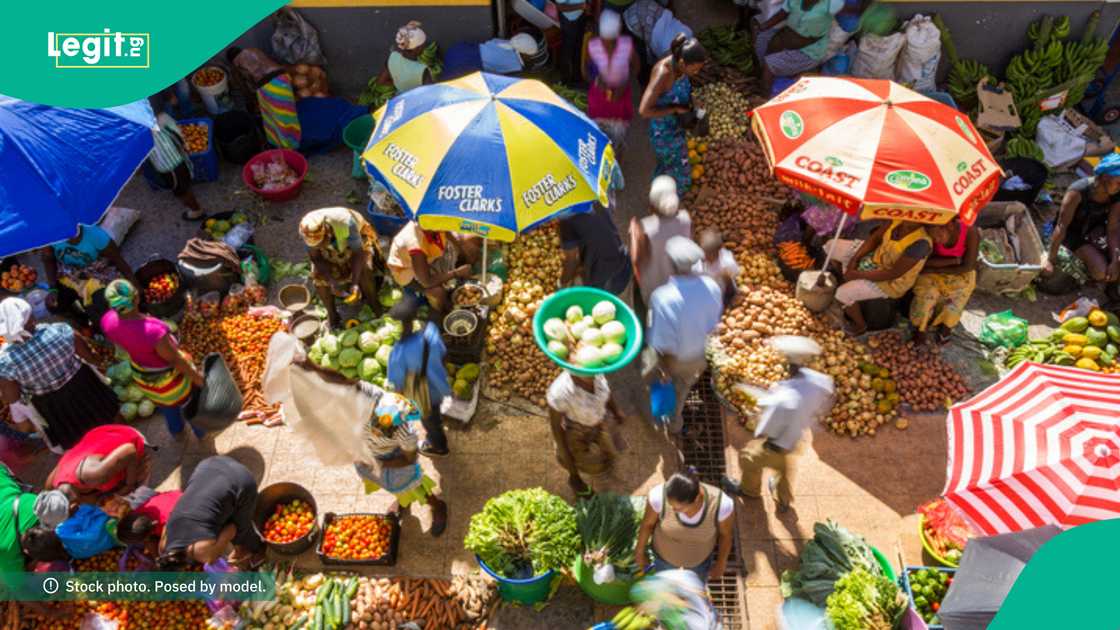Top 10: Nigeria, Sudan Projected to Have High Inflation in 2025
- Businesses, consumers, and economies are all significantly impacted by high inflation
- An African country's high 2025 inflation prediction is a red flag of economic instability
- Sudan, South Sudan, Nigeria among others are part of countries estimated to have high inflation in 2025
Legit.ng journalist Zainab Iwayemi has 5-year-experience covering the Economy, Technology, and Capital Market.
A number of economic issues, including high inflation estimates in various African nations, continue to be a source of worry.

Source: Getty Images
A high inflation forecast for 2025 in an African nation is a warning sign of economic instability, which might have major repercussions for numerous businesses if preventative actions are not implemented.
The International Monetary Fund's most recent World Economic Output report projects that developing economies—which include a number of African nations as well as some in Europe and the Middle East—will have double-digit inflation indices.
Here are the African countries projected to have the highest levels of inflation spikes in 2025.

Read also
Full List of Nigerian states with highest contribution to VAT pool in January 2025, Lagos leads
Sudan - 118.9%
Sudan’s inflation rate dipped slightly to 215.52% in September from 218.18% in August, the Central Bureau of Statistics reported offering a glimmer of relief to a nation grappling with a devastating economic crisis. The IMF expects that the inflation rate will be 118.9% in 2025.
South Sudan - 79.3%
The Consumer Price Index in South Sudan showed no increase in October of 2024 over the previous month. Inflation Rate month on month in South Sudan averaged 3.67 percent from 2007 until 2024, reaching an all time high of 83.06 percent in July of 2016 and a record low of -33.20 percent in November of 2019. The IMF expects that the inflation rate will have an inflation spike of 118.9% in 2025.
Nigeria - 25.0%
Inflation in Nigeria rose to 34.60 per cent in November 2024, reflecting a 0.72 per cent increase from October 20024 rate of 33.88 per cent according to the NBS data. Nigeria is expected to have an inflation rate of 25% 9n 2025.
Burundi - 25.0%
The inflation rate in Burundi increased to 24.90 per cent in October from 23.30 per cent in September of 2024. This year, the country is expected to have a 25% inflation rate.
Zimbabwe - 23.6%
Zimbabwe's consumer inflation surged to 37.2% month on month in October in local currency terms after a sharp devaluation in the southern African country's currency. This year, the country is expected to have a 23.6% inflation rate.
Ethiopia - 23.3%
Data showed that Ethiopia’s annual inflation rate climbed to 17.5% in September 2024, from five-year low of 17.2% recorded in August, according to statistics office. Ethiopia is expected to have an inflation rate of 23.4 in 2025.
Angola - 21.3%
Inflation rate in Angola decreased to 28.41 percent in November from 29.17 percent as of October of 2024. In 2025, it is expected that the rate will be 21.3%.
Egypt - 21.2%
Egypt's annual urban consumer price inflation rate dropped more than expected to 25.5% in November 2024, its lowest since December 2022, data from statistics agency CAPMAS showed on Tuesday. In 2025, Angola is expected to have a 21.2% inflation rate.
Sierra Leone - 18.0%
Inflation Rate in Sierra Leone decreased to 15.41 percent in November from 16.92 percent in October of 2024. In 2025, Angola is expected to have a 18.0% inflation rate.
Malawi - 15.3%
Inflation Rate in Malawi decreased to 27% in November from 32.40% in October of 2024. In 2025, Angola is expected to have a 15.3% inflation rate.
Experts break down factors that drove food inflation
Legit.ng reported that the year 2024 came with strong economic headwinds, and for most Nigerians, the narrative can hardly be separated from food inflation.
The year started with food inflation of 35.41%, already 11.10% higher than the 24.32% food inflation in January 2024.
While this figure was already high enough to have Nigerians lamenting, it was the lowest for the year. By November 2024, the national average food inflation was 39.93%, with more than half the 36 states already having their food inflation over 40%.
PAY ATTENTION: Сheck out news that is picked exactly for YOU ➡️ find the “Recommended for you” block on the home page and enjoy!
Source: Legit.ng





